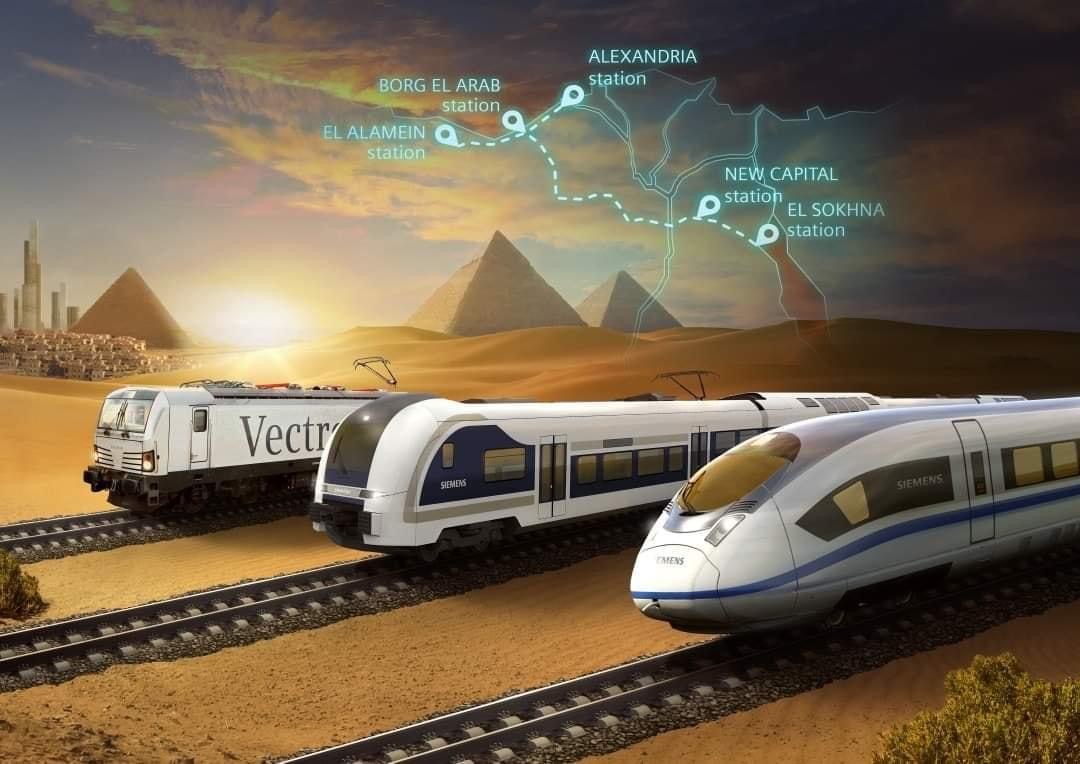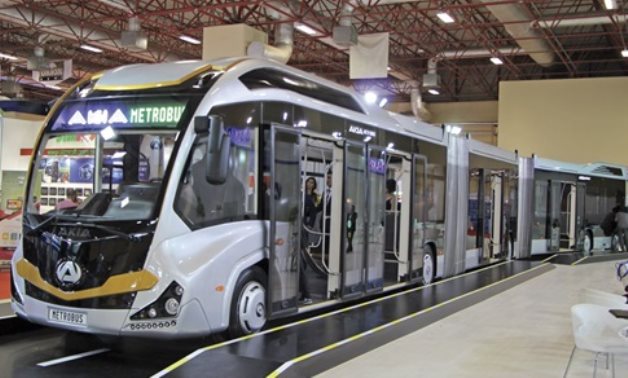CAIRO - 21 January 2023: Egypt has embarked on a number of sustainable transporta- tion projects based on environment-friendly technologies in passenger transport and green infrastructure.
Transportation is the second cause of environmental pollution in the country, as a result of carbon emissions, with transportation being responsible for 23-25% of carbon emissions in the atmosphere, according to Egyptian Minister of Transport Kamel El-Wazir.
This has pushed the authorities to lay the foundation for different projects and expansions including a monorail, electric train, the light rail transit (LRT), high speed electric train and the Bus Rapid Transit (BRT).

The aims, states the Ministry of Transport, is to transform transportation into collective means, thereby reducing the number of cars and alleviating traffic congestion.
Demonstrating the country’s stance in main- taining a safe and green environment, Egypt operated 260 electric buses in Sharm El-Sheikh to transport delegations attending the 27th UN Climate Change Conference (COP27) hosted in November. The ministry has begun its plan to convert to electric transport in Sharm El- Sheikh and the tourist cities of Hurghada, Luxor and Aswan.
In addition, the monorail is set to operate by 2023.
Cairo Monorail
With its two lines extending for almost 100km, Cairo Monorail is considered the lon- gest monorail network in the world, where pon completion, it is expected to be transporting 45,000 passengers per hour in each direction.
The monorail is among various methods of green transportation that Egypt has been con-structing in order to improve mobility for its population, reduce emissions, and ease traffic congestion.
Linking Cairo, New Cairo’s Fifth Settlement, the New Administrative Capital and Sixth of October City, the monorail will be Egypt’s most advanced means of mass transportation, as it runs on electricity instead of diesel. It is esigned to run at 90 km/hour and is fully-automated and driverless.
In August 2019, Bombardier Transportation, Orascom Construction and the Arab Contractors signed an agreement with the National Au- thority for Tunnels to design, build and operate two new monorail lines in Egypt. A consortium comprising Orascom, Alstom, and Arab Con- tractors has been implementing the project.
The first monorail line will extend 54km from East Cairo to the New Administrative Capital, with 22 stations and a depot. The second line will be around 42km in length connecting the Giza Governorate to Sixth of October City with 12 stations.
The total cost is slated to be €2.5 billion, and trains will have rubber tires to reduce noise, in addition to being corrosion-resistant and recy- clable.
Although the ticket price has not yet been officially determined, the Transport Minister has indicated that it could be around EGP 25 ($0.84).
Egypt’s BRT system
The BRT is a high-quality bus-based transit system that delivers fast, comfortable, and cost- effective urban mobility. BRT has the potential to improve accessibility in Greater Cairo by ex- tending the reach of the metro, bus, and para- transit systems.
The BRT, the first of its kind in the country, will serve 25 million people living in Greater Cairo (a quarter of Egypt’s population) through 47 stations located on the Ring Road.
The Ring Road will consist of six lanes for motorists, and a separate lane designated for BRT buses, bringing the total to seven lanes in each direction. The upgrading of the Ring Road, which is considered one of the most con- gested highways in Greater Cairo, has been un- derway to expand the lanes from four to seven in each direction.
Operating on electricity and stopping at des- ignated stations, the BRT system will replace microbuses, which will be completely banned on the Ring Road.

The BRT system is designed to travel for a dis- tance of 106 kilometers, where buses will oper- ate 18 hours a day with a speed of 50km/hour. It accommodates three bus models: single, double, and triple buses that can transport between 95 and 300 passengers.
In January 2022, El-Wazir announced that the first 10 stations of the BRT system will begin to be established, with architectural and construc- tion diagrams already completed.
In May 2021, El-Wazir stressed that this proj- ect would help Egypt cope with an ever-growing demand for means of transportation, especially when the government is relocated to the New Capital.
In addition, the country inaugurated its first light rail transit (LRT) in July, which can accom- modate 1 million passengers per day. The lines of the 105km LRT, some of which are still un- der construction, link Greater Cairo with Egypt’s new Administrative Capital, east of Cairo.
Egypt further decided to invest in electric cars, providing several charging stations in Cai- ro and Giza.
The nation’s Nabq Protected Area, located in South Sinai Governorate, has also inaugurated its new environmentally friendly transportation service with electric cars and water bikes.
Comments
Leave a Comment